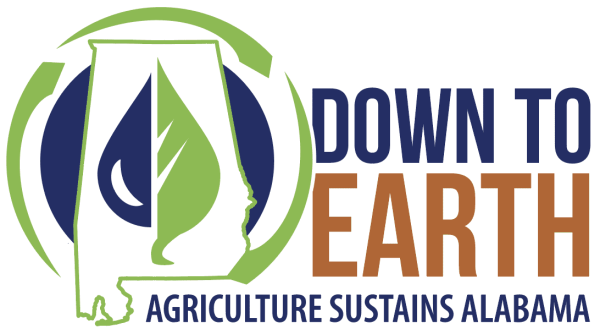Farming

AUBURN UNIVERSITY, Ala. – Data is much more than a collection of numbers and information. It is what fuels modern-day, sustainable agriculture practices. Farmers in Alabama and across the nation collect different forms of data to make management decisions in their operations. These data points allow them to be both economically and environmentally sound.
Data’s Role in Agriculture
Wendiam Sawadgo, an Alabama Cooperative Extension System economist, said when talking about sustainable agriculture, data plays a key role in two specific areas: precision agriculture and carbon markets.
Precision Agriculture
In the agriculture industry, the decisions farmers make can have major effects on their operations. Therefore, it is important to not only collect but use the data that comes from precision agriculture.
“In precision agriculture practices, farmers collect data that allows them to make specific changes to their management plans,” Sawadgo said.
This data gives farmers information on key management points such as irrigation, fertilizer strategies and herbicide and insecticide applications. This helps farmers reach optimum growing conditions and eliminates overuse of fertilizers, chemicals and other resources. With input costs rising, proper management of these resources is now more important than ever.
“In the end, for every dollar spent on food, farmers only get 16 cents of that,” Sawadgo said. “So, if farmers can use data to be more efficient when using their resources, there is a positive impact both environmentally and economically.”
Carbon Markets
With the emergence of carbon markets, companies can purchase carbon stored in the soil from farmers to offset their own emissions. Sawadgo said these companies want to see proof that these carbon-capturing practices have a changeable impact on the world. That is where data comes into the picture.
“These companies want to measure what carbon storage values are after the adoption of these practices,” Sawadgo said. “Some companies, instead of measuring at a field level, might take aggregate data from a bunch of farmers and put them together using complex modeling techniques. They use this to calculate an estimation of what a farmer’s practices would do given various soil types.”
Data Promotes Adoption of Sustainable Practices
With some of these lesser-used practices, Sawadgo said there can be some uncertainty by farmers as to whether the practices will have an economic benefit to their farms. However, by collecting data from operations that are using them, the industry can better understand how these practices benefit farmers from an economic standpoint. This in turn helps promote further adoption of the sustainable practices.
“In Alabama, we have seen some fairly significant increases from 2012 to 2017 in the use of conservation practices such as cover crops and no-till,” Sawadgo said. “Right now, cover crops are used on about 8 percent of farmland across the state, and 27 percent of farmland uses no-till.”
While these rates might seem a little low, they are both either in line or above the national averages. These usage rates show the power that data can have in the industry.
“By seeing the data from farmers that have used these practices successfully, it could really help encourage other farmers to adopt these practices, thereby increasing the usages rates even more in the future,” Sawadgo said.
Down to Earth: Agriculture Sustains Alabama
Alabama Extension is getting Down to Earth. Why? Because agriculture sustains Alabama. Whether your ag experience is in the grocery store, in the classroom or as your profession—Extension has a resource for you.
We are proud to be partnering with the Alabama Agribusiness Council, the Alabama Cattlemen’s Association, the Alabama Department of Agriculture and Industries, the Alabama Farmers Federation, the Alabama Poultry and Egg Association, the Alabama Forestry Commission, Sweet Grown Alabama and the Alabama Association of RC&D Councils.
Alabama Extension’s Down to Earth resources are available at www.aces.edu/go/DowntoEarth.


